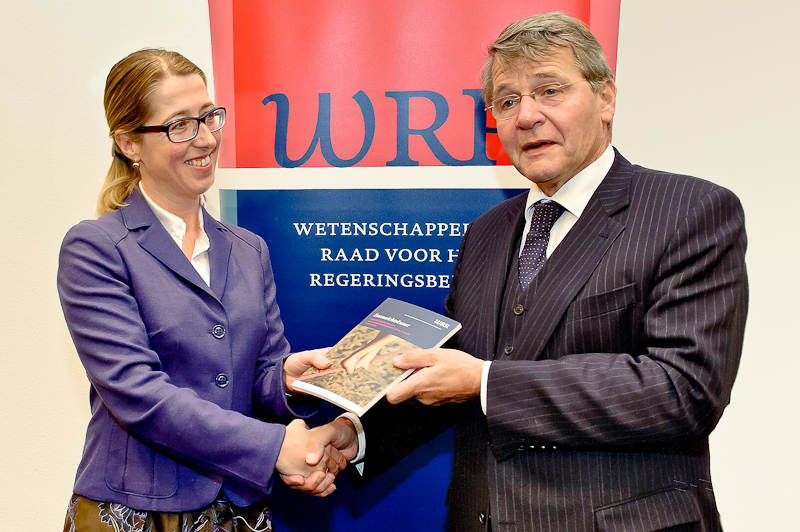Presentation: 'Balancing act’ on the risk-rule reflex
Infringements of physical safety (incidents) and potential dangers (risks and uncertainties) always demand difficult judgements and require a delicate balancing act. Engineering a more active role for businesses and citizens - alongside the government - ought to be possible.
That is one of the conclusions set out in the presentation Evenwichtskunst. Over de verdeling van verantwoordelijkheid van fysieke veiligheid (Balancing act. On the sharing of responsibility for physical safety), wich was presented to the Dutch Minister of the interior and Kingdom Relations, J.P.H. Donner.
Two central questions
Expectations about government responsibility for physical safety can be unrealistically high, and this prompted the Minister to ask the WRR to publish a Reflection on the issue. The Minister posed two central questions:
- What possibilities do you see for developing a generic risk policy with a smaller role for the government in relation to averting and compensating for risks?
- To what extent do you see opportunities to break through existing mechanisms and remove barriers, both as regards the risk-rule reflex and the reflex of laying responsibility at the government's door?
Responsibility
The WRR believes that the government should not be the only party paying the price for safety and compensating for loss or damage; businesses and citizens must also bear responsibility for this, for example by insuring themselves better. The WRR observes that several companies and sector organisations are making a variety of efforts to boost physical safety. The government could involve them much more emphatically in exploring risks and uncertainty.
